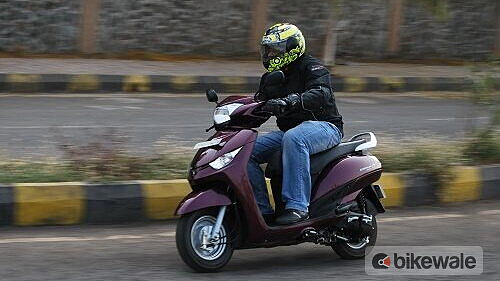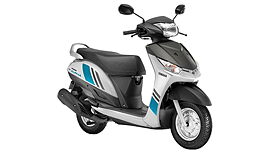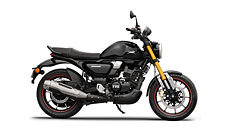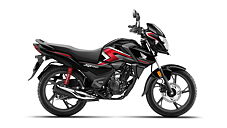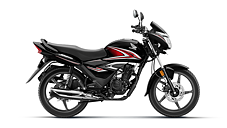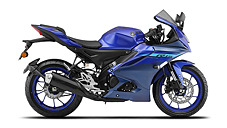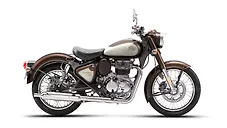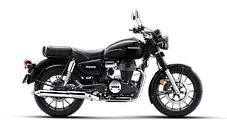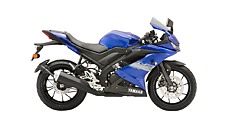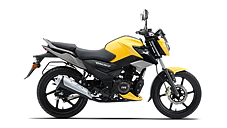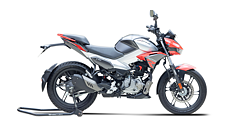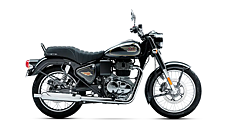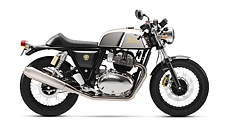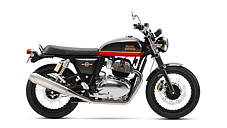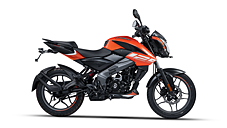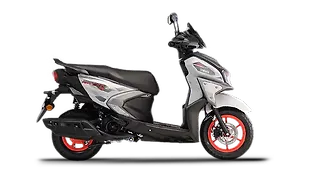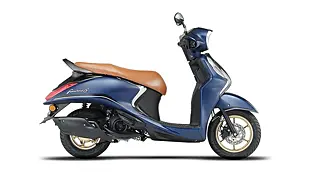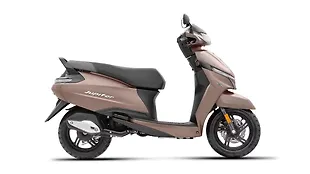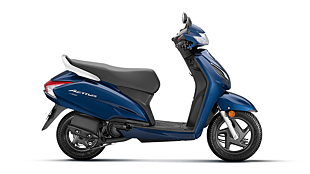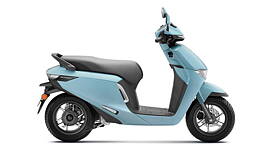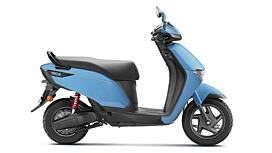Introduction

Time flies. It already has been more than a year and a half since Yamaha India introduced us all to the Ray. Launched as the company’s maiden offering to compete in India’s flourishing scooter market, the Ray managed to bring in good sales. Yamaha then followed it up with the launch of the sportier looking Ray Z which is currently doing well in the market but not as well as the brand would have liked.
So it’s with considerable risk that Yamaha recently launched the Alpha, to put up a direct fight against the likes of TVS Jupiter, Suzuki Access and the scooter royalty that is the Honda Activa.
Designed to cater to today’s active Indian families, the 110cc Alpha is just one of the new tricks up Yamaha’s sleeve for the Indian two wheeler market. But can it be considered as a viable alternative to any of the existing models from Honda, TVS or Suzuki?

Looks

The Alpha looks fresh and its design is very likeable, however, the scooter is just not distinctive enough at first glance to make one want to look closer. In contrast to the Ray’s youthful design, the Alpha looks far more conservatively designed.
The front end of the Alpha looks impressive, but more importantly, it is very refined thanks to the vertical creases and the swept back turn indicators. Unlike the neatly integrated headlight unit of the Ray and the Ray Z, the headlight in the Alpha has been positioned in the conventional position at the level of the handlebar.

The Alpha looks least impressive when viewed either from the side or the rear. Not that the design is downright uninspiring or lacking in flair, but it is a bit too ordinary and very similar to what we have come to expect from a scooter of this segment. The side profile, with its swooping lines and creases that run right up to the tail, is now a common affair among scooters. Speaking of which, the tail bears more than a passing resemblance to the Hero Pleasure, with the Alpha’s turn indicators looking virtually identical to the Hero’s 110cc offering. An unusual design touch on this scooter worth mentioning is the odd placement of the tail light (placed lower than the turn indicators) – I’m not sure if it will be accepted by potential buyers of this scooter.

Engine and Gearbox

The Yamaha Alpha feels fairly quick when accelerating away from traffic lights. This indicates good things (as I’ll come to later) about the 113cc, 2-valve, air-cooled engine that powers the scooter. Producing 7 bhp of power at 7000rpm and 8.1Nm of torque at 5000rpm, this four-stroke, single cylinder engine has enough grunt to quickly propel the Alpha up to speeds of 60 kmph. For those looking to ride two-up most of the time, there are bigger displacement models such as the Suzuki Access 125 and the Honda Activa 125 that might make more sense.
Yamaha uses the same 113cc engine in the Ray and as is the case with the latter, there is no doubting the impressive level of refinement to be found in the Alpha. The engine feels properly peppy and smooth in the way it works and leaves very little room for improvement.
The gearbox is the same as the Ray, a CVT which responds as well as any of the competition, but it is worked hard with two riders on board.

Ride and Handling

Weighing just 104kg (with oil and a tankful of petrol), the Alpha is among the easiest motorised things on two wheels to manoeuvre. Now we have heard the term ‘mass centralization’ often in the past few years, and this is the key to Alpha’s nimble handling. Combine that with a low seat height of 775mm and the Alpha makes light work of choked city traffic. The Activa and the Jupiter, however, fare better when it comes to the seat height, with both measuring at 765mm. The Yamaha, though, fights back with its slightly narrower saddle designed to offer better manoeuvrability when ridden at pedestrian speeds.
The Yamaha feels surprisingly planted for such a small scooter. While the Activa with its trailing link front setup feels a little skittish over bumps, the telescopic shock absorber-equipped Alpha scores really well, lending a fairly secure and stable feel throughout the rough stuff. The Alpha, in fact, handles very similar to the TVS Jupiter which also gets telescopic forks at the front.

The telescopic forks and the single-sided rear suspension are stiffly sprung, allowing the Alpha to respond swiftly and efficiently to the rider’s inputs. Further deepening the rider’s assurance are the tyres - 90/100 MRF Nylo Grip Zappers which may not seem very confidence inspiring, but they do offer loads of grip and help the Alpha stick to the road. All in all, the handling is very similar to the Ray since both models share the same platform. However, things are a little different when it comes to the ride quality of both the scooters.
Despite sharing wheelbase, wheel size, tyres and the suspension, the Alpha seemingly benefits from a slightly softer ride quality over the equivalent Ray. The ride quality feels more supple and compliant as compared to the Ray which rides a little hard over surfaces. Having said that, the Alpha yet doesn’t ride as well as the Honda Activa and given that the former is meant to ply on bumpy city streets, damping is a touch on the firm side.
Braking duties for this lightweight scooter are courtesy of 130mm drums at both ends. Although braking performance is adequately potent, Yamaha certainly could have done better by offering a front disc brake as an optional extra. As for the competition, the Deluxe version of the Honda Aviator performs the best under braking, thanks to a front disc brake and Honda’s ‘Combi-braking system’ which unifies braking power of the front disc and the rear drum.

Instrument Cluster and other features

Although very basic, the instrument cluster is clearly laid out. Neatly integrated inside the body coloured panel, the instruments include a speedometer, odometer and a fuel gauge prominently positioned to the right.
Beneath the long, well-padded saddle, there’s 21 litres of under seat storage which Yamaha says can hold most full-face helmets, however, none of us here at BikeWale could manage to fit in ours, which are admittedly very large full-face helmets. Pillion accommodations haven’t been forgotten, as the Alpha gets a pair of wide footrests and a large grab rail with an aluminum paint finish.
The Alpha, then, comes loaded with a fair bit of goodies though Yamaha could have done even better by offering a brake-lock clamp. The only other modern scooter that also ignores this is Piaggio’s stylish Vespa 125.

Verdict

The Yamaha Alpha sits halfway between a full-size 110cc scooter like the Honda Activa and a lightweight city runabout like Yamaha’s own offering – the Ray, so in theory it should offer riding comfort in spades and some traffic busting agility. It manages that too – it feels considerably light to handle and fits the bill of a small family scooter.
Yes, a more stylish looking package would have been preferred by many but the Alpha has a lot going for it. At Rs 50,800 ex-showroom, Yamaha has priced it nearly on par with the Activa and the Jupiter which come in at Rs 49,600 and Rs 50,200 respectively. Yamaha, then, will definitely have its work cut out competing against the likes of Honda, Suzuki and TVS.

Gallery
1/27
Double Tap to Zoom











